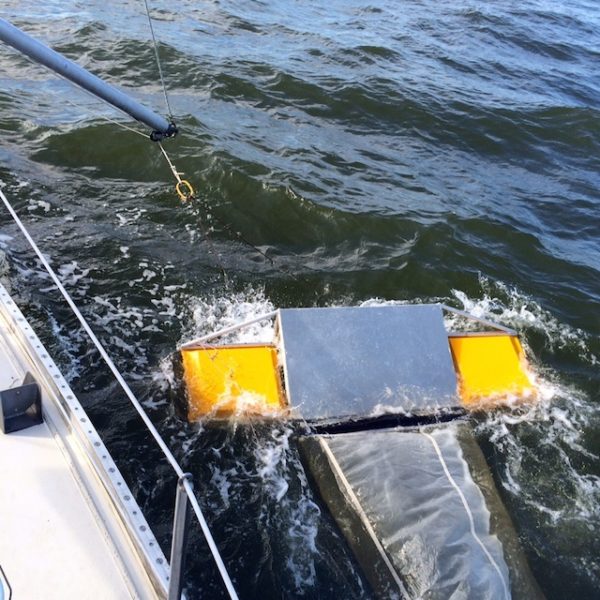Our Trash Trawl Discovery: Plastic, Inspiration and Hope
By Douglas Weissburger, Story of Stuff Community Member
In September, I went out on the Chesapeake Bay with my 15-year-old daughter, Lillian, for a “trash trawl.” The way it works is that researchers gather water samples for lab evaluation to better understand the trash problem in the Bay, particularly as it relates to plastic in our watersheds. We were invited on the trip by The Story of Stuff Project and Trash Free Maryland, a local nonprofit focused on preventing trash pollution.
It was our first outing, so it was hard for us to appreciate the enormity of the problem based on a few vials of water. But, as we were in the middle of the Bay where the water seems clear and clean, we saw flecks of plastic in those samples and realized that there was a big problem beneath the surface.
As we saw the evidence of what was happening to the waterways close to our home, at first we were overwhelmed, but the humanity and steadfastness of our environmental crusader hosts gave us hope and left us emotionally soaring after our sail.
As a longtime community member, I have watched as The Story of Stuff Project has fought in the trenches, chalking up big victories banning microbeads in California, several other states, and internationally. Trash Free Maryland has also been at the heart of successful regional campaigns, including advocating for laws that ban foam food packaging as well as those that require disposable bag fees.
These are big accomplishments, spearheaded by people with big hearts and dogged determination. And that’s what stayed with my daughter and me. For a young person (as well as an adult), the environmental crisis can feel overwhelming.
“Their work is inspiring and gives me hope,” Lillian remarked.
Sustainability, in my view, brings out our better nature. What I mean is that living more lightly on this earth forces us to think about more than just ourselves — it requires that we expand and follow our hearts in our day-to-day living and act with moral courage. It also forces us to reflect on our culture and whether there is something askew.
Sustainability scholar John Ehrenfeld, in his book Sustainability by Design, argues that our culture is characterized by a pathology in which we are defined by “having” rather than “being.” This leads to a misguided quest for satisfaction through increased levels of consumption rather than through authentic meaning. It also puts us on the path of unsustainability.
In other words, our “having” mode of life and our take-make-waste culture is a primary reason for environmental degradation. Moreover, this materialism degrades and coarsens our social condition and diverts us from focusing on the things that truly matter and that define our humanity.
What moved my daughter and me on that Saturday afternoon was exposure to committed and caring individuals like our hosts, Stiv Wilson, The Story of Stuff Project’s Campaign Director, and Julie Lawson, Trash Free Maryland’s Founder, as well as our sailboat captain, Mike Jewell, who volunteered his boat and time.
They had all made the shift to “being” and, as such, can inspire us all to do the same for both our environment and personal happiness. They also reminded us, to use the sailing theme, that we need all hands on deck.





